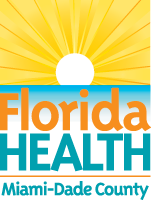Florida Department of Health in Miami-Dade County Calls For Quit Attempts During The Great American Smokeout
November 15, 2021
Miami, Fla. – With the annual Great American Smokeout taking place November 18, 2021, Tobacco Free Florida in Miami-Dade County is using this observance to encourage people to make a plan to quit smoking using the free tools and services available to Floridians.
Tracing its history back more than 40 years, the American Cancer Society’s Great American Smokeout marks a date when smokers are encouraged to use the date to either make a plan or to begin their quit journey.[i] This year, the American Cancer society is highlighting tobacco-related disparities during the Great American Smokeout.
While rates of cigarette smoking have declined, some groups smoke at higher rates and suffer disproportionately from smoking-related illnesses. The health burden of tobacco use is especially high among racial and ethnic minorities, low-income individuals, the LGBT community and those with mental health conditions.[ii] Additionally, lower-income populations have less access to health care, making it more likely that they are diagnosed at later stages of diseases and conditions.[iii]
The Florida Department of Health in Miami-Dade County Tobacco Prevention and Control Program is working with local organizations across Miami-Dade County to encourage staff and community members to quit smoking for the Great American Smokeout. This year, local organizations, healthcare systems, and the Miami-Dade Students Working Against Tobacco Chapter are raising awareness about the dangers of tobacco, nicotine, and electronic vapor product (EVP) use. They will also be sharing effective evidence-based resources available to help those who use tobacco, nicotine, and/or EVPs to successfully quit through virtual and in-person activities, emails and social media platforms in observance of the Great American Smokeout.
Organizations across Miami-Dade County can also use the Great American Smokeout as a time to encourage employees, clients, and the community they serve who smoke to consider a quitting.
Quitting smoking can add up to 10 years to life expectancy.[iv] The health benefits of quitting smoking include reducing the risk of heart attack and stroke, improving lung function and lowering the chances of getting an array of different cancers.[v],[vi]
Information on the history of the Great American Smokeout, national activities to support quitting and other materials can be found at https://www.cancer.org/healthy/stay-away-from-tobacco/great-american-smokeout.html. Tobacco Free Florida’s quit tips, tools and more are available by visiting www.TobaccoFreeFlorida.com or by calling 1-877-U-CAN-NOW.
About Tobacco Free Florida
The Florida Department of Health’s Tobacco Free Florida campaign is a statewide cessation and prevention campaign funded by Florida’s tobacco settlement fund. Since the program began in 2007, more than 254,000 Floridians have successfully quit using one of Tobacco Free Florida's free tools and services. There are now approximately 451,000 fewer adult smokers in Florida than there was 10 years ago, and the state has saved $17.7 billion in health care costs.[vii] To learn more about Tobacco Free Florida’s Quit Your Way services, visit www.TobaccoFreeFlorida.com or follow the campaign on Facebook at www.facebook.com/TobaccoFreeFlorida or on Twitter at www.twitter.com/tobaccofreefla.




Connect with DOH